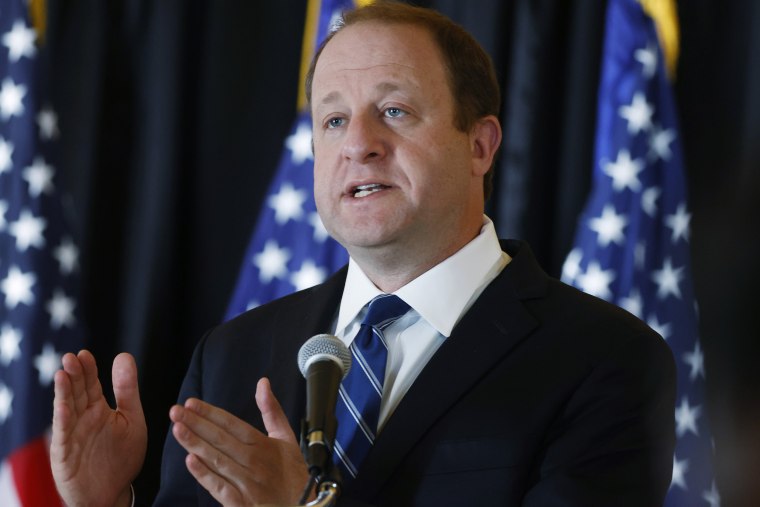Colorado has joined more than 30 other states in temporarily suspending evictions, preventing renters from being removed from their homes during the COVID-19 pandemic.
Gov. Jared Polis issued an executive order on Thursday night that banned evictions and foreclosures through May unless a case poses a public safety risk.
Previously, Colorado did not have a statewide moratorium on evictions during the coronavirus outbreak. Instead, Polis, a Democrat, issued guidance to limit evictions, requesting that landlords work with tenants on payment plans and waive late fees.
Housing and legal advocates said the latest order will relieve anxiety and stresses for thousands of Coloradan families who were confused by the previous policies and feared facing homelessness. Before Thursday’s order, decisions on evictions had been left to courts and local governments, creating a patchwork of policies. Many district judges and cities suspended eviction proceedings because of the pandemic, but others still allowed cases to be filed.
“This injects a lot more clarity into the system and rules governing landlord-tenant relations during COVID-19,” said Zach Neumann, a Colorado attorney who started the COVID-19 Eviction Defense Project, a group of about 50 volunteer attorneys providing assistance to renters during the pandemic. “There is noticeably less fear talking to tenants today than there was yesterday.”
Polis' order came the same day the Colorado Department of Labor and Employment announced that more than 358,489 initial unemployment claims had been filed since mid-March.
“Many Coloradans experienced substantial loss of income as a result of business closures and layoffs, hindering their ability to keep up with their rent or mortgage payments and threatening their housing security,” Polis said in his order, which also extended the limitations on public utility disconnections. “This executive order will help protect the economic well-being of Colorado’s communities and businesses during the next month.”
The order prohibits landlords and lenders from charging late fees or penalties if renters or homeowners are unable to make payments. State agencies, such as the Department of Local Affairs and the Colorado Department of Labor and Employment, should work with property owners and landlords to create model repayment agreements, the order stated.
The federal Coronavirus Aid, Relief and Economic Security Act banned eviction filings nationwide until Aug. 23 for renters whose landlords have mortgages backed or owned by the U.S. government. The latest order also requires landlords to notify tenants of federal protections against evictions and foreclosures for each property.
Mark Williams, executive vice president of the Colorado Apartment Association, a nonprofit trade organization representing owners, developers, management companies and vendors in the multifamily rental housing industry, said in a statement that he was surprised by the order. The organization does not believe the governor has the authority to interfere with contracts between two private parties, he said.
Some local groups are calling for the cancellation of rent during the pandemic. But Polis said at an April 13 news conference that he does not have the authority “to suspend the sanctity of contract law.”
Williams said the order will not change rental housing providers’ actions because nearly all had already stopped executing and most had committed to working with residents by not charging late fees and by offering payment plans.
He said the association is concerned Polis’ order could create unintended consequences, such taking away landlords’ ability to remove squatters who cannot be evicted because of the moratorium. Michelle Lyng, a spokeswoman for the CAA, said some lawyers who are members of the association have been struggling with how to remove squatters, pointing to a case in Castle Rock, where a woman had problems evicting her ex-boyfriend from her home.
“When law enforcement is reluctant to take action to assist in such situations, access to the court should be afforded to housing providers and co-occupants,” Williams said.
